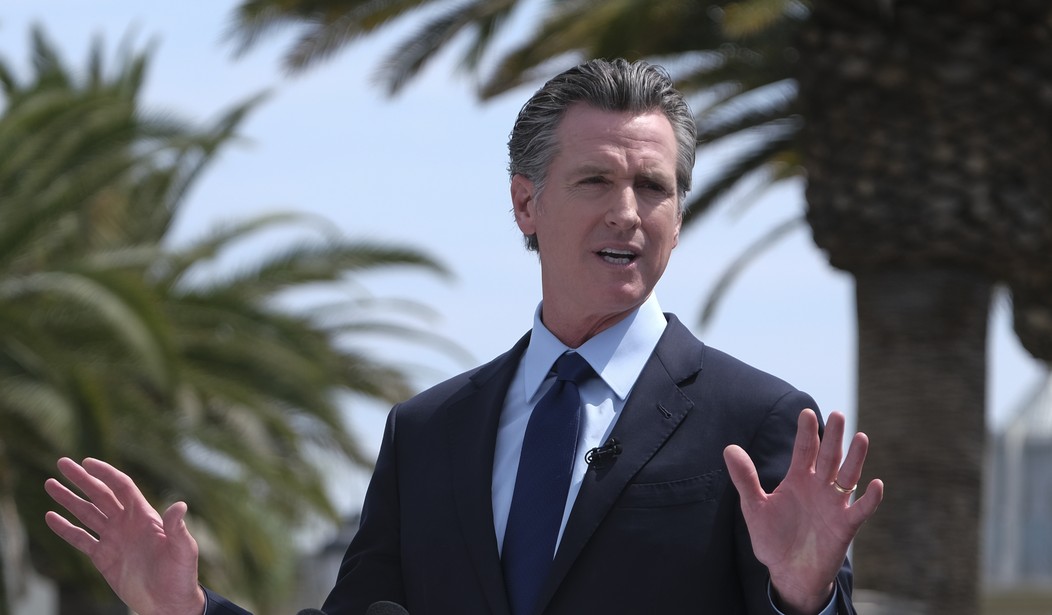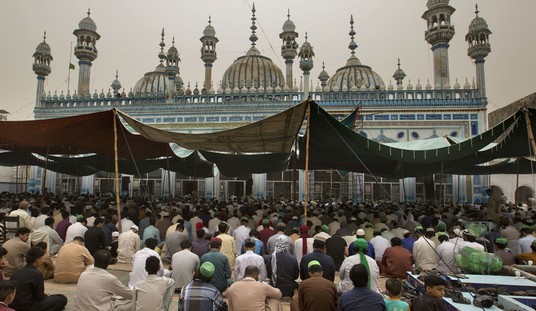The recall election in California is set to take place four weeks from today but yesterday we learned that a pair of Californians have filed a federal lawsuit claiming the recall process is unconstitutional.
A complaint filed in U.S. District Court for the Central District of California argues that the state’s recall provision violates the equal protection clause of the U.S. Constitution by allowing sitting governors to be replaced by candidates who have received fewer votes. The plaintiffs, Rex Julian Beaber and A.W. Clark, want a court order either prohibiting the recall election or adding Newsom’s name to the replacement candidate list. Elections officials have already sent millions of ballots ahead of a state deadline today.
If this sounds familiar, that’s because this lawsuit is precisely the argument that two Berkeley law professors made in the NY Times earlier this month. The gist of their argument is that California’s two-step recall vote is unconstitutional. In step one, voters decide whether the current governor should be recalled. In step two, if step one passes the voters then pick from a list of candidates to replace him. Here’s the thought experiment which law professors Aaron Edlin and Erwin Chemerinsky put forward in their piece:
Imagine that 10 million people vote in the recall election and 5,000,001 vote to remove Mr. Newsom, while 4,999,999 vote to keep him in office. He will then be removed and the new governor will be whichever candidate gets the most votes on the second question. In a recent poll, the talk show host Larry Elder was leading with 18 percent among the nearly 50 candidates on the ballot. With 10 million people voting, Mr. Elder would receive the votes of 1.8 million people. Mr. Newsom would have the support of almost three times as many voters, but Mr. Elder would become the governor.
The court filing lays out that same basic argument and then asks the court to do one of two things:
There appear to be two, possible remedies here: (1) enjoining the Sept. 14, 2021 recall election entirely; and, (2) enjoining that election insofar as it implements § 15(c), so that were it to be held it would need to include Governor Newsom’s name as a potential candidate for Governor, were question 1 to receive a majority of votes and pass.
As Politico pointed out above, millions of ballots have already gone out, so adding Newsom’s name at this point is impossible under the current deadline. This basically becomes a plea to delay the special election, something many Democrats now believe might be better for Newsom’s chances. The other option is just to end the recall election.
What’s interesting about the entire argument is that it’s based on the need to respect the will of the voters. But what about the will of the 2.1 million people who signed petitions to get the recall on the ballot? Apparently their will must be ignored despite the fact that this process has been used to replace a governor in the past (Gray Davis) and has been underway for months.
The other element of this is that the thought experiment above asks that the will of the majority in the recall be ignored. If 5,000,001 people vote to recall Newsom, then he should be removed from office. Removed from office does not mean becomes a candidate for office. But under Chemerinsky’s argument the losing side of the recall would be able to immediately undercut by the will of the majority and re-elect their candidate.
I’m not an attorney so I have no idea if the courts will buy this argument but it seems to me that the solution the Berkeley professors are proposing, the one on which the lawsuit is based, is just as dismissive of the majority vote as the current process. If the losing minority are allowed to immediately undo the recall by voting their candidate back in, then the will of the majority has been thwarted.
This lawsuit is effectively arguing that Californians should not be allowed to recall a governor or any other elected official. Instead it proposes the best voters can demand is a do-over election in which the incumbent is instantly the leading candidate with all the benefits of incumbency. As it is, the current process has only resulted in one successful recall of a governor so it’s not as if this is happening after every election.
Even if the Berkeley professors are right on the law, it’s unfair to stop this now after money has been spent gathering signatures and ballots sent out in accordance with the existing law. If we can keep extending the eviction moratorium on the grounds that even unconstitutional decisions can’t be ended abruptly, surely we can hold this long-scheduled recall election which is only four weeks away.
Democrats must be very nervous about Newsom’s chances to push this stunt at the 11th hour.








Join the conversation as a VIP Member